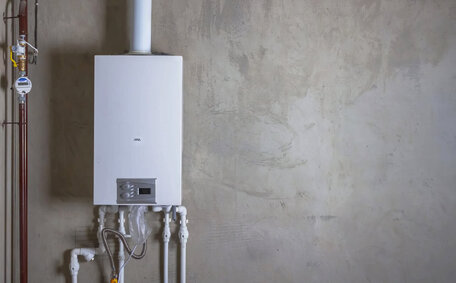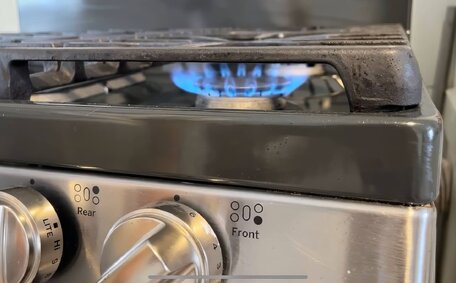Introduction: Soil, Sediment and How They Can Impact Blocked Drains
Soil erosion and sediment buildup can significantly impact drainage systems over time, leading to blocked drains and other issues. As experienced plumbers servicing Glenhaven, Sydney for years, we at Glenhaven Plumbing understand this well.
When soil is washed away by stormwater flows, it carries fine sediment that eventually settles and accumulates. Drainage pipes and waterways can become clogged with this sediment, restricting water flow. Small particulates of sand, silt and clay are especially problematic as they bind together when compacted.
In this article, we’ll explore the causes and sources of soil erosion, how sedimentation occurs, and why it can wreak havoc on drainage systems. We’ll also provide solutions that property owners can implement to prevent sediment pollution and properly manage stormwater.
Understanding Soil Erosion and Sediment Buildup
Soil erosion occurs when soil particles are detached and transported by water, wind or other forces. Common causes include rainfall, flooding, deforestation, construction activities and more. Essentially, any disturbance of vegetative cover or excessive water flows can destabilise and displace soil.
As eroded soil travels, it picks up sediments like sand, silt and clay particles. This sediment-laden water then enters and builds up in drainage systems and water bodies. Over time, the accumulation can be substantial enough to obstruct pipes, drains and streams.
Sediment pollution has widespread impacts. It degrades habitats, reduces aquatic biodiversity and affects recreation. It degrades habitats, reduces aquatic biodiversity and affects recreation.
Polishing the waterway banks with grass, shrubs and retaining walls help control soil erosion in Glenhaven, Sydney. Polishing the waterway banks with grass, shrubs and retaining walls help control soil erosion in Glenhaven, Sydney.
Common Causes of Soil Erosion
There are many activities that commonly cause soil erosion problems. Construction and development projects that involve clearing land and moving large amounts of soil can cause significant erosion. This disturbs the ground surface and exposes soil to flowing water or wind.
Agriculture also contributes greatly to soil erosion issues. Activities like tilling fields, grazing livestock and clearing vegetation destabilise soil and make it prone to washing or blowing away. Deforestation linked to logging or mining has similar effects.
Extensive landscaping works like grading a yard or steep slopes can also detach soil particles and increase runoff. Drainage from roofs, driveways and paved surfaces may channel concentrated flows that erode soil.
In addition, natural forces like when rains are heavy, floods and storms can dislodge and transport substantial quantities of soil. Droughts that bake and crack soil exacerbate these impacts. Wildfires that destroy stabilising vegetation have tremendous erosion potential as well.
Managing development activities carefully using sediment control measures is crucial. Sustainable agricultural practises help too. Well-vegetated spaces resilient to storms and floods also prevent soil erosion effectively in Glenhaven, Sydney.
How Sediment Buildup Can Lead to Blocked Drains
As eroded soil travels and accumulates, it steadily builds up inside drains, pipes and waterways. Over months and years, this sediment pollution eventually amasses enough to obstruct or even block drainage capacity.
Restricting water flows this way has numerous impacts. Drainage issues on properties increase flood risk and damage underground infrastructure. Blocked street drains also contribute to localised flooding after storms.
Sediments also harbour toxins, bacteria, litter and organic matter. Allowed to flow freely, this contamination worsens water quality in streams, rivers and bays. A 2021 NSW Environment Protection Authority (EPA) study found that sediments were the leading cause of freshwater pollution, degrading over 70% of waterways.
Removing built-up sediments is difficult and expensive too, often involving manual cleaning, high-pressure jetting or vacuum extraction. Preventing sediment pollution is clearly the smarter approach for Glenhaven, Sydney residents through better stormwater management.
Preventing Blocked Drains Due to Sediment
There are several effective ways that Glenhaven, Sydney homeowners can prevent sediment buildup and blocked drains. Installing protective devices, following good drainage practises and implementing soil erosion control measures make a significant difference.
Use Sediment Control Devices
Devices like silt fences, sediment traps and storm drain filters capture sediment before it enters drainage systems. Strategically placed around disturbed soil or drainage entry points, these controls divert runoff to remove particles. They work by slowing and ponding flows, allowing sediment to settle.
Another excellent preventative tool is silt bags.
Placed inside drains and pits, their geotextile fabric filters trap sediment while allowing filtered water through. Silt bags stop particles from travelling downstream once inside, preventing blockages. With regular maintenance to remove accumulated debris, silt bags provide ongoing protection.
Follow Good Drainage Practises
Proactively keeping drains, gutters and pipes clear using covers, screens and grates prevents sediment entry. Routinely clearing out accumulations ensures unobstructed drainage capacity. Following a diligent gutter and drain cleaning schedule avoids obstructive buildup inside.
Careful placement and protection of drain inlets during construction also helps. Preventing soil and debris loads from directly entering drainage networks minimises system impacts and expensive sediment removal efforts later.
Control Soil Erosion
Limiting soil erosion stops sediment pollution at the source. Effective erosion control measures include using temporary ground covers, establishing vegetation, stabilising slopes, diverting runoff and managing site watering. Such precautions apply to construction projects, agricultural sites and landscaped spaces.
With some forward planning, Glenhaven residents can tackle sediment pollution and drainage issues before they start. We hope these blocked drain prevention tips help avoid the unpleasant impacts of sediment accumulation down the track.
Landscaping and Erosion Control Measures
Careful landscaping strategies can significantly reduce soil erosion issues for Glenhaven properties. Vegetation plays a vital role in stabilising soil and controlling water flows that transport detached sediment.
Planting native trees, shrubs and groundcovers establishes an organic barrier that intercepts rainfall energy, improves infiltration and traps moving soil. Their extensive root systems also reinforce and bind soil particles together for added stability.
Strategically placed around erosion-prone areas, drainage channels and sloped sections, vegetation impedes surface runoff. This encourages water absorption while capturing mobilised soil across the landscape. Dense planting literally stops sediment in its tracks before it enters drains.
Water-loving species near waterways are especially useful. Their soil-retention capabilities directly preserve the health of surrounding streams and rivers by filtering out sediment loads.
Vegetative erosion control creates aesthetic, low maintenance landscapes too. Glenhaven residents reap nature’s rewards through vibrant greenery that prevents sediment pollution issues sustaining biodiversity and water quality for the community.
Stormwater Management and Drain Protection
Implementing proper stormwater management is crucial for preventing sediment issues and drain blockages in Glenhaven. Sustainable drainage systems (SuDS) treat runoff through infiltration and filtration to capture pollutants like soil particles before they enter drains.
Why Stormwater Management Matters
Urbanisation massively increases impervious surfaces like concrete that prevent natural absorption. Stormwater flowing rapidly across these hard surfaces efficiently transports sediment erosion into drainage networks. Allowed to enter unchecked, this builds over time and blocks drains.
Managing this process through SuDS provides vital source control. These systems filter, store, infiltrate and treat stormwater runoff close to where it falls. Acting before sediment-filled water enters pipes, SuDS protect drainage capacity and waterways.
Sustainable Drainage Systems
Well-designed bioretention systems, wetlands, infiltration trenches, rain gardens and permeable pavements all manage stormwater effectively. Using nature-based processes, they slow flows, filtering through vegetation and soils to trap sediment.
Strategically implemented around sediment sources, these controls prevent soil particles from ever entering drainage. Maintained properly, SuDS offer ongoing protection against sediment blockages for Glenhaven’s drainage infrastructure.
With care and foresight, stormwater management preserves local water quality, property drainage performance and environmental values for the community.
Proper Installation and Maintenance of Drainage Systems
Correct installation and regular maintenance of drainage systems is vital for preventing blockages from soil and sediment over time.
Proper Installation
New drainage systems need to be connected and laid correctly right from the start. Proper gradients, capacities, materials and joining methods ensure unobstructed water flows. Careful placement ensures water can smoothly bypass known pollutant entry points too.
At Glenhaven Plumbing, we professionally install new drainage infrastructure to exacting standards. Our extensive experience lets us maximise system lifespans and prevent unnecessary sediment blockages down the track through ideal initial setup.
Regular Maintenance
Consistent drainage maintenance clears sediment buildup before it causes blockages. High-pressure jetting blasts away inside particulates, restoring full flow capacity. We also vacuum away dislodged debris for complete results.
CCTV drain inspections help identify problem areas early too. Catching issues before total blockages lets our specialists determine tailored maintenance plans for each system.
With new drain installations perfectly designed to minimise sediment intrusion and tailored ongoing maintenance clearing accumulating particulates, Glenhaven Plumbing delivers optimal drainage performance and protection from blockages.
When to Call a Professional Plumber for Blocked Drains Issues
Persistent drainage issues like slow-flowing water, gurgling sounds, bad odours, and water backing up are clear signs a professional plumber should inspect your drains. As blocked drains can result from sediment buildup over time, don’t ignore these warnings.
Attempting drain fixes yourself with store-bought chemicals or devices may seem convenient, but often worsen issues long-term. Proper diagnosis by a licenced technician using CCTV and advanced clearing equipment is essential.
As experienced plumbers dealing with blocked drains regularly across Glenhaven, Sydney, Glenhaven Plumbing’s specialists can accurately assess your situation. We determine if sediment or other materials are obstructing your pipes, guiding tailored solutions.
By catching drain blockages early before total failure, extensive pipe damage or flooding occurs, customers save substantial costs. If you suspect looming issues, call Glenhaven Plumbing on 1300 349 338 or email [email protected].
Our 12-month workmanship warranty provides peace of mind you’re in qualified hands.
Conclusion and Key Takeaways on Soil, Sediment and Blocked Drains
As we’ve explored, soil erosion and resulting sediment buildup pose a major risk for blocked drains over time. Detached soil particles are transported by water flows into drainage systems, steadily accumulating until obstructing pipes, gutters and waterways.
Left unchecked, this sediment pollution degrades infrastructure, property drainage and water quality. Clearing blockages is also difficult and costly once excessive sedimentary deposits harden.
Thankfully, proactive measures like drainage protection devices, erosion control and stormwater management prevent particles entering in the first place. Installed and maintained properly, these methods provide effective, ongoing defence against sediment drainage issues.
For concerns about potential soil or sediment buildup causing blocked drains, trust Glenhaven Plumbing. Our extensive experience tackles these problems across Sydney, restoring free flows and optimised drainage with minimal environmental impact.
Protect your property and our waterways - contact us today on 1300 349 338 to discuss tailored solutions stopping sediment pollution and drainage problems before they start.





